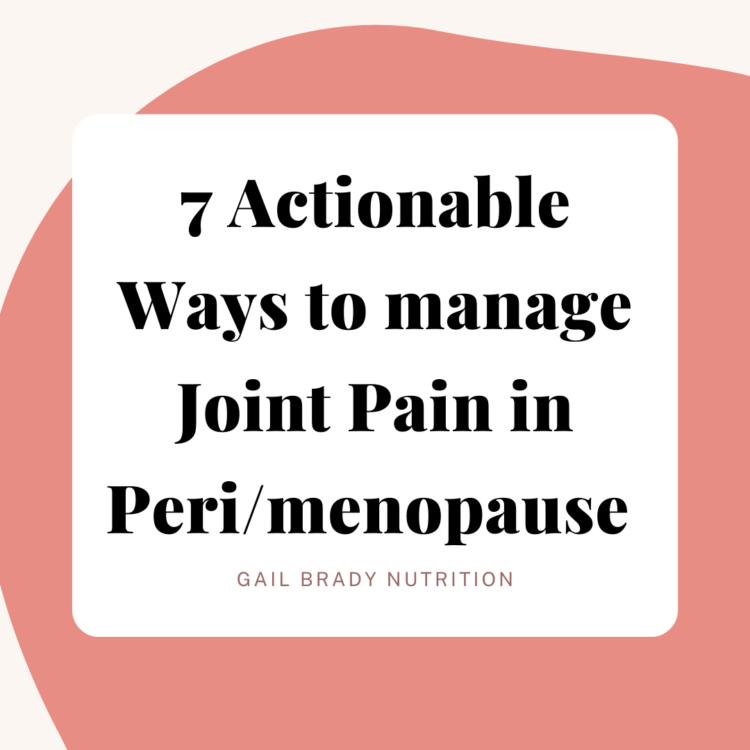 If joint pain has become an issue for you during peri/menopause, this post is for you.
If joint pain has become an issue for you during peri/menopause, this post is for you.Research has shown that women are more likely to experience arthritis, frozen shoulder and joint issues from peri-menopause onwards.
In a recent study of 3500 menopausal women, 30% reported joint issues.
The parts of the body most commonly affected are the hips, hands, knees and shoulders.
Why?
The hormone oestrogen is thought to play a role as it can help to keep the joints lubricated and working smoothly. And a decline in oestrogen levels during peri/menopause has been associated with sore, painful and aching joints.
Oestrogen also helps to reduce inflammation.
However, there are many other factors which may increase joint pain by contributing to inflammation within the body including: increased levels of the stress hormone cortisol, sub-optimal thyroid function and increased blood glucose levels.
Here are some tips to for managing joint issues:
-
Drink plenty of water and keep hydrated
-
Avoid sugary foods and drink, including alcohol, to keep your blood sugar levels in check
-
Get your vitamin D levels checked by your GP or alternatively here is an inexpensive, quick and easy postal service if you live in the UK http://www.vitamindtest.org.uk/
-
Boost your collagen levels by making or buying a good quality bone broth. Here is a link to a recipe I posted a while ago https://www.facebook.com/…/a.509233…/650873908270391/… You may also like to consider taking a collagen supplement.
-
Consider taking a good quality fish oil supplements – NB please check with your health care provider if you are taking medications, fish oils can interfere with the effectiveness of some prescription drugs
-
Keep active – exercise, stretching and moving are essential for joint health
-
Try acupuncture, massage or chiropractic
IF you would like to find out more about how personalised nutrition and lifestyle could help you to regain control of your health and hormones watch my FREE video HERE
